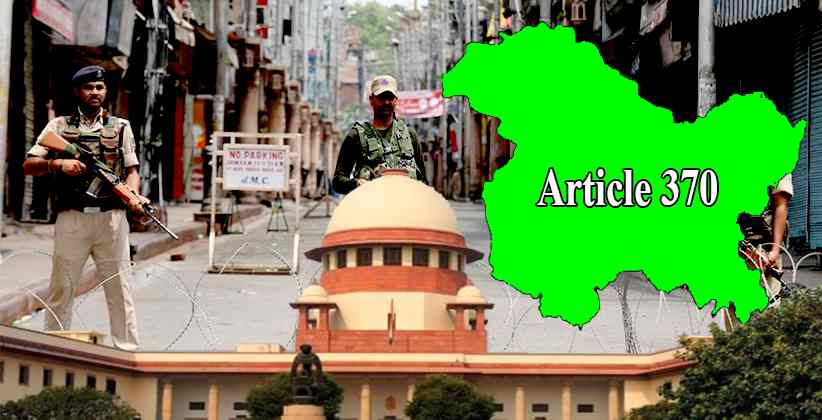The Supreme Court today (January 21, 2020) while hearing all the challenges against the abrogation of Article 370 of the Constitution of India, 1949 considered referring the matter to a larger bench.
Article 370 was abrogated last year on 5th August 2019. The article used to give a special status to Jammu and Kashmir. A Five- Judges bench will now look into the various aspects of this abrogation. This Bench will have Justices NV Ramana, SK Kaul, R Subhash Reddy, BR Gavai and Surya Kant as its members.
The Supreme Court earlier had heard the matter for two days before going on its winter break. Now the five- judges constitution bench will resume hearing the matter again.
Senior Counsel Rajiv Dhawan urged the court to excuse him from arguing toady. He also asked those counsels who were arguing in favour of the constitution of a larger bench to argue about specific points seeking reference and the substantive questions of merit involved in matter. While agreeing with Rajiv Dhawan, Justice SK Kaul said that, "If you think that this Bench cannot put quietus to the question, then argue on the preliminary issue of reference only, not on the substantive questions involved."
Senior Advocates Dinesh Dwivedi and Sanjay Parekh were arguing in favour of the reference of the matter to a larger bench. While other counsels and and the Attorney General of India KK Venugopal were arguing that the matter shouldnt be referred to a larger bench.
When the court was hearing the side of advocate Dwivedi, he told the court how the Constitution of J&K came into being. He said that after the formation of the constitution of J&K in 1957, the President could not have used his power given under Article 370. He also talked about the Instrument of Accession of Jammu and Kashmir and also told the court that Clause 6 of the instrument gave sovereignty to J&K. He also argued that the centre cannot have full power to legislate in the matter of J&K because of the Instrument of Accession. He said that the article 370 acts as a link between the Centre and J&K. J&K can only be governed through this instrument and with the consensus of the State. He also mentioned that the Article 370 has a provision which talks about the consultation with the state assembly and the Constitution of J&K is the final source of legislative power. He argued that Article 370 does not have the power to make amendments in the Constitution of J&K.
While arguing he quoted two important judgments namely Prem Nath Kaul v. The State of J&K 1959 AIR 749 and Mohammad Maqbool Damnoo v. The State of J&K 1972 AIR 963.
Author: Aditi Dubey









